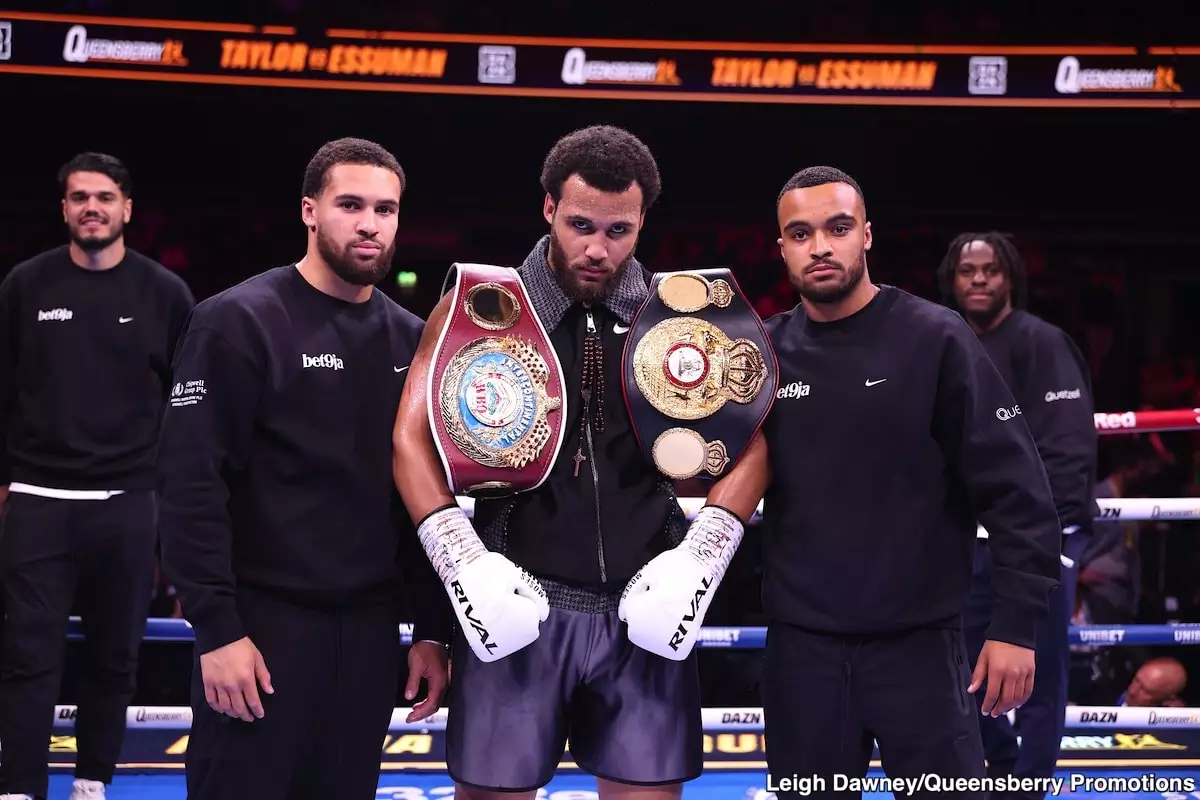Moses Itauma’s meteoric rise in the WBO heavyweight rankings, following his recent second-round knockout of veteran Mike Balogun, has sent ripples throughout the boxing community. At just 20 years old and with a record of 12-0, including 10 knockouts, his elevation to the #1 contender position ignites both excitement and skepticism. While the WBO president Gustavo Olivieri announced Itauma’s promotion, the decision has drawn significant backlash, raising questions about the credibility of boxing organizations who precede merit with momentum.
The fiercely competitive world of heavyweight boxing traditionally serves as a proving ground for fighters with meaningful accolades and substantial resumes. To understand the basis for the backlash, one must consider the opponents Itauma has faced. His most notable victories come against fighters with questionable recent performances: Balogun, who at 36 years old has no high-profile wins, and Demsey McKean, fresh off a knockout loss. Such matchups call into question whether his ranking is warranted or merely a product of marketing hype surrounding a young fighter.
A Concerning Pattern of Hand-Picked Opponents
Skeptics point to Itauma’s choice of opponents, suggesting that he has been strategically guided towards less challenging contenders. Among these, the wins against Mariusz Wach, a 45-year-old journeyman, further raise eyebrows. The question posed by many fans and analysts is legitimate: Does Itauma truly deserve the #1 spot against fierce competition if his challengers’ credentials extend to underwhelming career trajectories? The boxing community cannot ignore the historical context—champions have fought wars against contenders who were battle-tested, not handpicked for convenience.
Itauma’s recent comments reflect an awareness of the need for competitive challenges. He acknowledges the importance of stepping up in class yet seems caught in a balancing act to maintain his undefeated status. The situation hints at a broader concern in boxing: Are prospects being babied to protect unbeaten records instead of being forged into champions through rigorous training and real competition?
Credentialing a Phenom: The Need for Experience
With this rapid ascent into stardom, there are growing concerns about whether Itauma is really prepared for the kind of championship battles that await him should he maintain his ranking. His aspirations of moving into more competitive territories, such as fighting in America, reveal a hunger for growth. Yet the reality remains unchanged—elite boxers are rarely made from untested talent alone.
Moreover, the sharp contrast with his brother, Karol Itauma, who appeared to have a promising start only to falter against experienced opponents, raises further alarm. How valid is Moses’s confidence when it is rooted in a similar trajectory? Understanding how the pressure of high stakes affects not just performance but a fighter’s psyche is crucial in boxing, where the mental game is as significant as physical ability.
A Glimmer of Hope Amidst Controversy
In his defense, Itauma’s dynamism and raw talent cannot be discounted. The 20-year-old has displayed flashes of brilliance in the ring—something that fans and pundits alike agree upon, regardless of the skepticism surrounding his opposition. With a mixed bag of critical opinions, the silver lining lies in the hope that Itauma’s youth and natural abilities will eventually lead him to battle seasoned rivals who can truly test his mettle.
The boxing world thrives on narratives, and for now, Moses Itauma is one of the most scrutinized figures. Should the young prospect navigate the tricky waters of heavyweight boxing skillfully, prove the critics wrong, and back up his bold proclamations with tangible victories, he might just become the revitalizing force boxing needs. Until then, the debate about how rankings should reflect performance and character remains open, as the sport watches, waits, and wonders what’s next for this young contender.


Leave a Reply